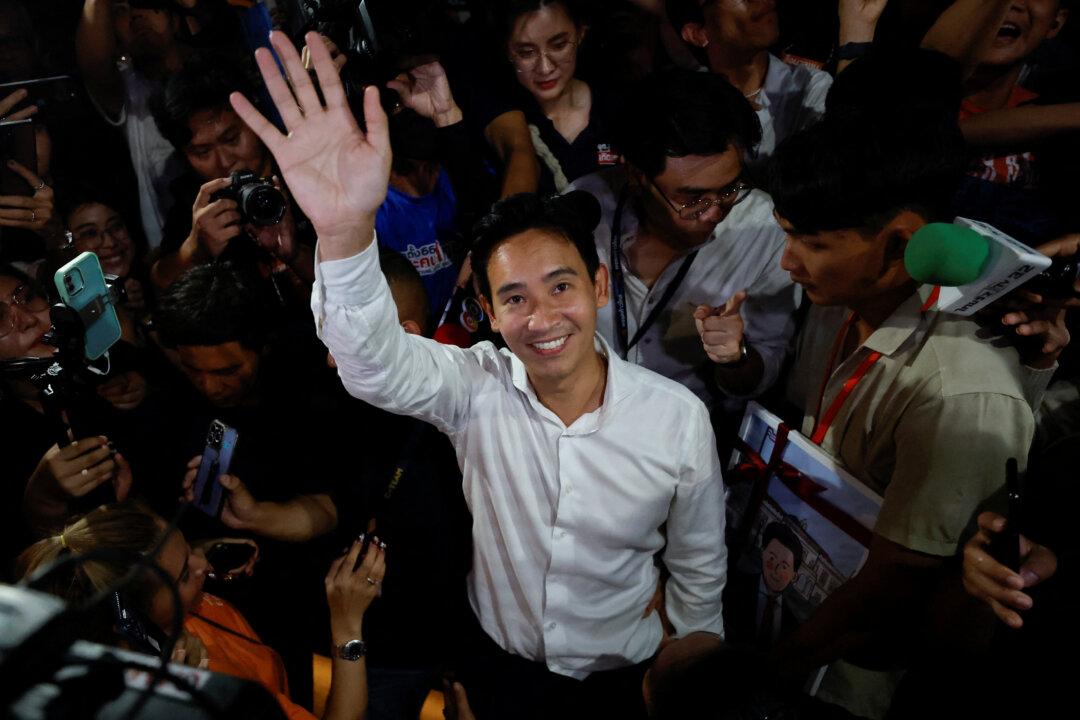BANGKOK—Thailand’s opposition secured an election victory on May 14 after defeating parties allied with the military, setting the stage for a flurry of deal-making over forming a government in a bid to end nearly a decade of conservative, army-backed rule.
The liberal Move Forward party and the populist Pheu Thai Party were far out in front with 99 percent of votes counted, although it was far from certain that either will form the next government, with parliamentary rules written by the military after its 2014 coup skewed in its favor.





